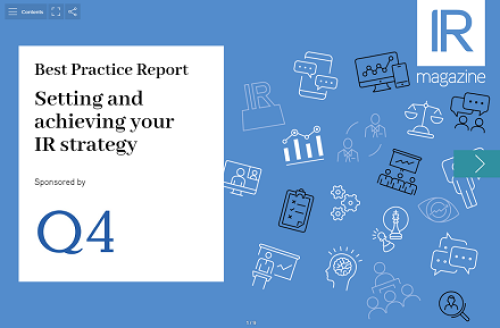But BNY Mellon survey finds Japanese codes have had no impact on investing approach for many investors
North American and European investors hold largely positive views of the impact of Japan’s Stewardship Code, introduced two years ago, and the country’s Corporate Governance Code, introduced in June 2015, according to research from BNY Mellon.
For the 20 investors at 19 large and small investment firms surveyed, which have aggregated equity assets under management of $679 bn – of which $49 bn is invested in Japanese equities – the most important components of the codes are the independence of board directors at 65 percent and return-focused capital policy at 60 percent.
Almost all respondents (19 out of 20) point to some improvement in issuer behavior since the introduction of the codes (adherence to which is voluntary), though many (45 percent) indicate that their approach to investing in Japan has not changed.
‘Concerns were voiced that many issuers will approach implementation of the codes with a ‘box-ticking’ mentality, and fulfill only the minimum requirements at the surface level or provide vague explanations for non-compliance in the absence of truly embracing the spirit of the codes,’ write the authors of BNY Mellon’s Investor sentiment on Japanese reforms study.
‘For example, some participants point out that a majority of issuers in Japan have demonstrated progress by appointing one or two independent directors: more important, however, will be the degree of their independence, their qualifications and their influence on decision-making, which will ultimately determine how the codes’ principles are applied in practice.’
So while 65 percent of respondents see the independence of board directors as one of the most important components of the codes, when asked what key measures will serve as evidence the codes are actually working, only 30 percent of investors cite the number of independent directors. Instead, shareholder returns top the list at 65 percent, followed by return on equity at 45 percent, profitability at 40 percent and balance sheet efficiency at 35 percent.
Offering advice on how Japanese firms could better attract international investment, BNY Mellon says companies ‘should be outlining their views on optimal capital structure, setting clear return-on-equity and return-on-invested-capital targets, and delivering on these objectives and returning excess capital to shareholders,’ write the authors.
‘While some respondents acknowledge they have seen some Japanese companies showing a greater willingness to discuss balance sheet efficiency, they agree that they have not seen sweeping changes in the Japan investment landscape and, more importantly, they are waiting to see execution over a longer period.’
In terms of investor relations, ‘investors agree’ that Japanese issuers could encourage greater buy-side interest by increasing access to senior management and maintaining visibility through global conferences, company events and regular non-deal roadshows.
A quarter of investors say Japanese companies ‘generally promote themselves less than their developed market peers’. Yet ‘it is important for Japanese management and IR teams to prepare a coherent and compelling equity story that clearly outlines the company’s mid to long-term strategy, global competitive advantages, growth potential and strategy to counter current domestic macro trends.’
Some respondents even point to examples of Japanese companies with strong fundamentals that are misunderstood or under-appreciated simply because of ‘a lack of management visibility, ineffective articulation of their investment cases and insufficient information flow (especially English-language materials), all of which are challenges Japanese companies can address,’ notes BNY Mellon.
As one US fund manager with $33.4 bn in equity assets under management notes in the research: ‘We like to see that a company really has the belief to focus on the bottom line and make a presentation that it is focused on operating profit and return to shareholders. IR in Japan has actually improved quite a bit, but it is a mixed bag. If a company can sit down and discuss what it wants to be, talk about how it wants to get there, and show how it cares about shareholders, that is most of the battle.’










